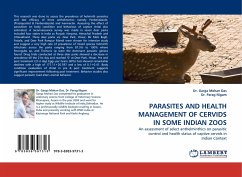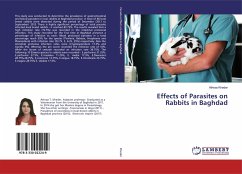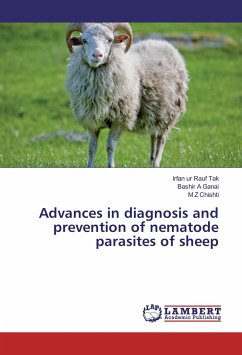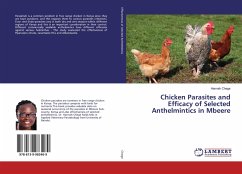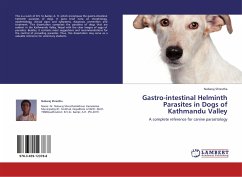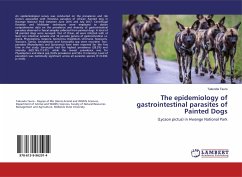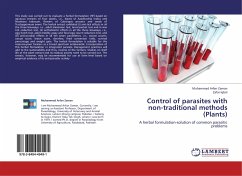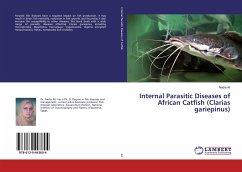This research was done to assess the prevalence of helminth parasites and test efficacy of three anthelmintics namely Fenbendazole, (Praziquantel & Fenbendazole) and Ivermectin. Assessing the effect of parasitism on body condition and behaviour of captive chital also estimated. A reconnaissance survey was made in seven deer parks included four states in India as Punjab. Haryana, Himachal Pradesh and Uttarakhand. Three deer parks viz. Deer Park, Hissar, Bir Moti Bagh, Patiala, and Deer Park Rampur Mandi were chosen for intensive study and suggest a very high rate of prevalence of mixed species helminth infections across the parks ranging from 87.5% to 100% where Strongyles sp, and Trichuris sp were the dominant parasitic genera found. Drug trials conducted at three deer parks showed a decrease in prevalence till the 21st day and reached 0' at Deer Park, Hissar. Pre and post treatment (21st day) Eggs per Gram (EPG) had showed remarkable declines with a high of 177.11+20.597 and a low of 0.1+0.41. Body condition evaluation of chital in pre & post treatment suggests significant improvement following post treatment. Behavior studies also suggest parasitic load alters animal behavior.

